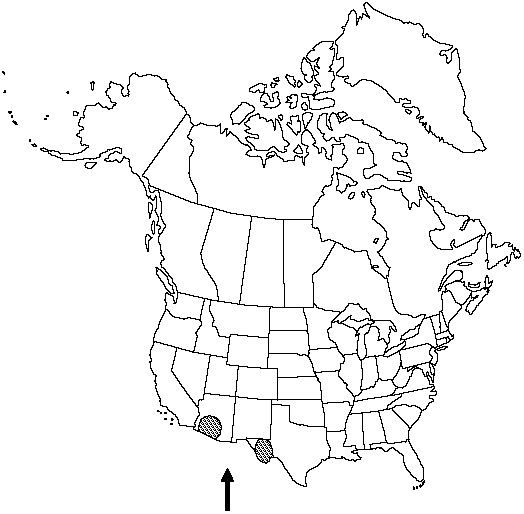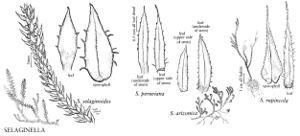Difference between revisions of "Selaginella arizonica"
Smithsonian Misc. Collect. 72: 5–6. 1920.
FNA>Volume Importer |
imported>Volume Importer |
||
| (2 intermediate revisions by 2 users not shown) | |||
| Line 8: | Line 8: | ||
}} | }} | ||
|common_names=Arizona spike-moss | |common_names=Arizona spike-moss | ||
| + | |special_status={{Treatment/ID/Special_status | ||
| + | |code=F | ||
| + | |label=Illustrated | ||
| + | }} | ||
|basionyms= | |basionyms= | ||
|synonyms= | |synonyms= | ||
| Line 44: | Line 48: | ||
|publication title=Smithsonian Misc. Collect. | |publication title=Smithsonian Misc. Collect. | ||
|publication year=1920 | |publication year=1920 | ||
| − | |special status= | + | |special status=Illustrated |
| − | |source xml=https:// | + | |source xml=https://bitbucket.org/aafc-mbb/fna-data-curation/src/2e0870ddd59836b60bcf96646a41e87ea5a5943a/coarse_grained_fna_xml/V2/V2_485.xml |
|genus=Selaginella | |genus=Selaginella | ||
|subgenus=Selaginella subg. Tetragonostachys | |subgenus=Selaginella subg. Tetragonostachys | ||
Latest revision as of 20:23, 5 November 2020
Plants on rock or terrestrial, forming rather loose mats. Stems not readily fragmenting, prostrate, upperside and underside structurally different, irregularly forked, branches determinate, tips upturned in extremely dry conditions. Rhizophores borne on upperside of stem throughout, 0.25–0.3 mm diam. Leaves conspicuously dimorphic, in 8 ranks, tightly appressed to ascending, green; abaxial ridges present; apex with transparent to opaque, flattened bristle 0.1–0.3 mm, sometimes becoming acute (by breaking off of bristle). Underside leaves lanceolate, 2–2.5 × 0.5–0.6 mm; base decurrent, glabrous; margins ciliate, cilia transparent to opaque, spreading or ascending, 0.06–0.13 mm. Upperside leaves linear-lanceolate to slightly falcate (on marginal ranks), 1.9–2.25 × 0.4–0.55 mm; base abruptly adnate, pubescent or glabrous; margins ciliate, cilia transparent to opaque, spreading, 0.06–0.15 mm. Strobili solitary, 5–10 mm; sporophylls ovate-deltate, abaxial ridges not prominent, base glabrous, margins short-ciliate to denticulate, apex acute.
Habitat: In rock crevices or on gravel, on sandstone, igneous, or rarely limestone substrates
Elevation: 600–2000 m
Distribution

Ariz., Tex., Mexico in Baja California, Sonora.
Discussion
Selaginella arizonica can be further distinguished from the similar S. peruviana by its broad, thin underside leaves. In S. peruviana the underside leaves are narrow and fleshy.
Selected References
None.
